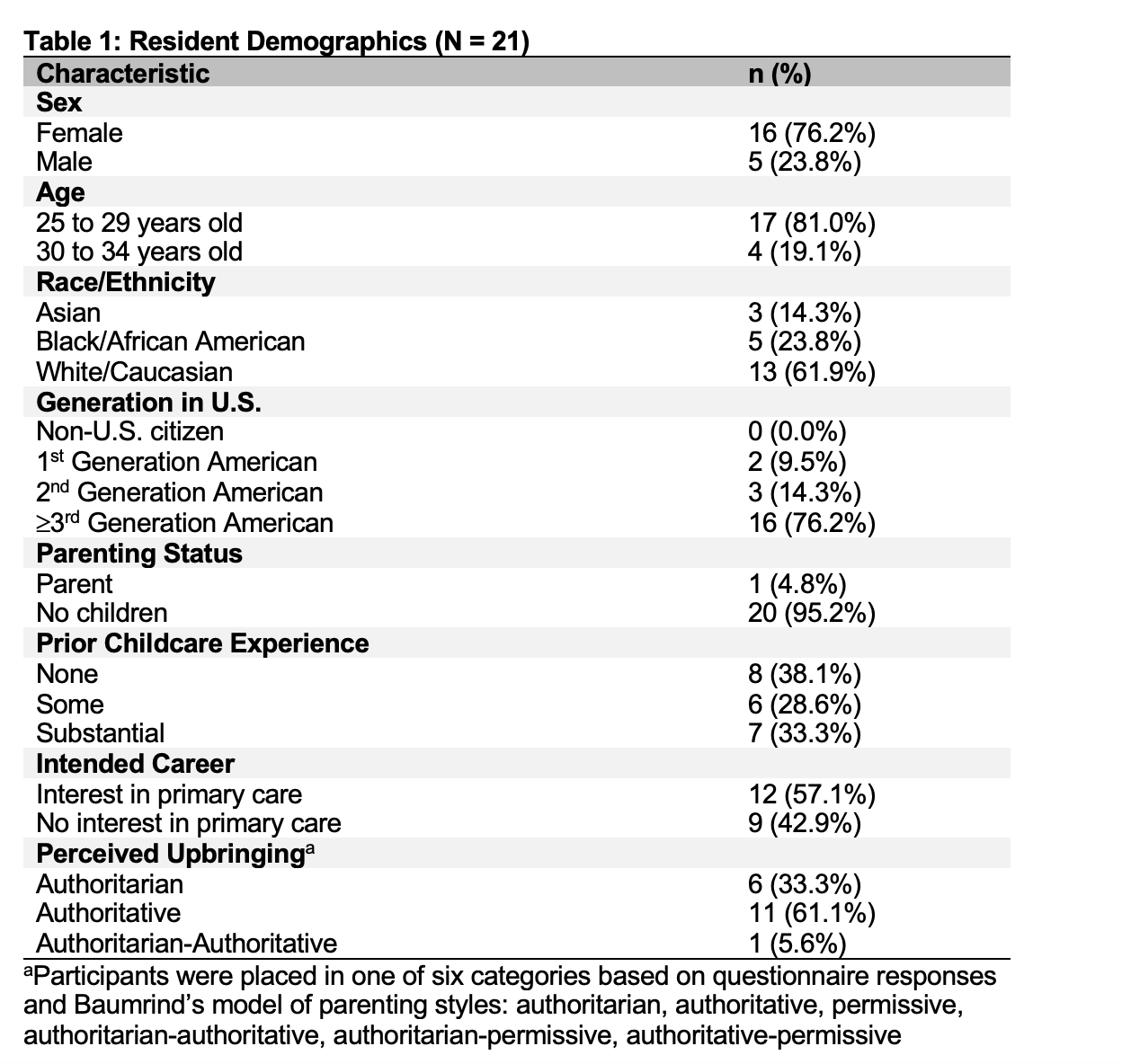Developmental and Behavioral Pediatrics: Parenting
Developmental and Behavioral Pediatrics 5
687 - Pediatric Resident Bias Factors in Assessing Early Relational Health
Sunday, April 30, 2023
3:30 PM - 6:00 PM ET
Poster Number: 687
Publication Number: 687.307
Publication Number: 687.307
Jessica E. Reed, Emory University School of Medicine, Atlanta, GA, United States; Amie A. Hane, Williams College, Williamstown, MA, United States; Catherine Abrams, Emory University School of Medicine, Atlanta, GA, United States; Martha G. Welch, columbia University Medical Center, New york, NY, United States; D David O'Banion, Emory + Children's Pediatric Institute, Atlanta, GA, United States

Jessica E. Reed, BS (she/her/hers)
Medical Student
Emory University School of Medicine
Atlanta, Georgia, United States
Presenting Author(s)
Background: The AAP’s 2021 policy statement on early relational health (ERH) highlighted the need for promoting safe, stable and nurturing relationships to mitigate childhood toxic stress. Training pediatric residents how to assess the quality of child-parent relationships offers an exciting opportunity in preventing toxic stress and building resilience.
Objective: 1) To examine the relationship between various bias factors (i.e. prior childcare experience, parenting experience, perceived upbringing, intended career, and implicit bias) and pediatric residents’ ability to accurately assess for emotional connection (EC) between child-parent dyads 2) To explore whether the relationship between residents’ perceived upbringing as a child and ability to accurately assess EC varies by residents’ acculturation status (i.e. the number of generations one’s family has been in the US).
Design/Methods: We trained 21 pediatric residents on their DBP rotation from January to September 2022. The training focused on ERH assessment using the Welch Emotional Connection Screen and next-step treatment methods in an at-risk dyad. Due to limited resident cohorts and resources during this time period, the sample size was limited (n=21). Accuracy in assessing EC was determined by the mean rating error, which was measured as the difference between trainee and expert coder scores. Surveys were administered via RedCap. Statistics included descriptive tests, t-tests, and ANOVA.
Results: Descriptive findings can be found in Tables 1 and 2. Of note, most residents had an authoritative-styled upbringing (61%) compared to authoritarian (33%) or a combination of authoritative-authoritarian styles (6%). Permissive parenting was not reported. Implicit biases also varied within the sample with a white preference reported in 39%, a black preference in 28%, and no preference in 33% of residents. Accuracy in assessing EC did not vary significantly based on prior childcare experience, intended career, perceived upbringing, or implicit bias. Furthermore, a significant interaction did not exist between acculturation and perceived upbringing.
Conclusion(s): These preliminary findings suggest that the measured potential bias factors do not impact a resident's ability to assess emotional connection. While this study’s sample size presents a major limitation, the findings offer several opportunities for future work on ERH education. Namely, teaching pediatric residents techniques to repair strained dyad relationships in the clinical setting is a promising next step in promoting safe, stable and nurturing relationships.


.png)
